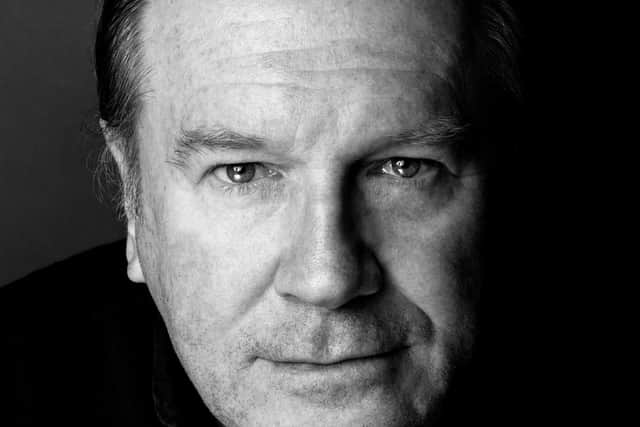Arts review of 2022: Allan Massie on the year in books
Evelyn Waugh once called Somerset Maugham “the only living studio-master under who one can study with profit.” His point was that, while the novelist may be an artist, he is first of all a craftsman. Good novels are well put together – even though many great ones may not be. There is satisfaction in the well-made novel, and Robert Harris’s Act of Oblivion and William Boyd’s The Romantic were the two best-made and therefore most enjoyable new novels I read this year. Harris tells of the hunt, mostly in New England, for two Cromwellian colonels who had signed Charles I’s death warrant. Boyd’s is a fictional biography of a remarkable 19th century man. Both books offer deep pleasure to those who love novels, instruction to anyone setting out to write one.
It has been a good year for old stagers. Ian McEwan’s Lessons was his best book for years. Jonathan Coe’s Bourneville engagingly followed a group of Middle England characters from World War II to Brexit. John Banville, most elegant of novelists, revived some of his old characters in The Singularities, showing once again that he writes as beautifully of decaying Irish country-houses as Chekhov did of Russian ones. James Buchan followed his huge biography of John Law, the 18th century Scottish financier and chancer, with the first of a planned six-novels featuring one of his disciples: A Street Shaken by Light sets off brilliant flashes. Meanwhile Anne Tyler, surely one of the best American novelists writing today, was, as usual, on good form with French Braid, a delightful short novel that a lesser writer would have made very much, and surely tediously, longer. Spies in Canaan by the Belfast writer David Park, was a Vietnam novel which contrived also to be about Northern Ireland; very good indeed.
Advertisement
Hide AdAmong Scottish writers Donald S Murray satisfyingly extended his range with The Cry of the Cormorant, based on the life of a Faroese fantasist and artist who contrived to get mixed up with the Nazis, broadcasting in wartime from Berlin; a remarkable story, elegantly and compellingly told. Claire Alexander’s Meredith Alone was an unusual novel, yet in the classic tradition, its theme being the moral education of the heroine. Philip Miller’s The Goldenacre was a pleasingly elegant crime novel set in Edinburgh, while Alan Parks’s Glasgow novel May God Forbid, steeped in the darkest Tartan noir, nevertheless contrived to be agreeably distinctive.


One of the best historical novels was The Great Passion by James Runcie, very different from his Grantchester soft-crime novels, and set in the household of JS Bach; unusual, highly intelligent and very engaging. I would also commend Michael Arditti’s The Young Pretender (about Master Betty, the boy actor who was briefly the darling of the theatre in the early 19th century) and, for original Tudor crime, Of Blood Descended by Stephen Veerapen. Stewkey Blues by DJ Taylor was the best book of short stories I read this year: varied, sometimes sad, sometime funny, snapshots of Norfolk life.
Ray Perman’s biography of the “father of geology”, James Hutton, is surely destined to be the standard life, and also offers a fine portrait of Enlightenment Edinburgh; richly compelling even for those of us ignorant of his work, indeed baffled by it. Majestic River by Charles Withers, Geographer Royal of Scotland, a biography of Mungo Park and an account of the exploration of the River Niger by Park and his successors, is surely majestic itself. Anyone following Professor Withers will surely be, as the poet George Barker said of his mother, “like a little boy following a brass band”.
In Homecoming, Rosemary Goring found a new way of telling an old story in her study of Mary Queen of Scots’ few years in her native land. If Mary’s life has been pored over time and again, most know little of Flora MacDonald’s beyond the few days she spent helping Bonnie Prince Charlie evade the Redcoats. Flora Fraser’s admirable biography shows there was much more of interest to her life.
Just Go Down to the Road, James Campbell’s memoir of less than successful schooldays in Glasgow, time as an apprentice printer and footloose wanderings in the Sixties is a delight, though doubtless surprising to those wo know him only as the long-serving and erudite columnist “JC” in the TLS.


Finally, two memoirs by schoolmasters. Jock MacDonald, almost 40 years a Classics master at Winchester (where the young Rishi Sunak was one of his pupils), was also an early climate activist, conscious of belonging to a generation that has had it good, sadly aware that times may be tough for today’s adolescents: his book Gibbon’s Years is serious but also entertaining. Equally entertaining and as serious in a different way is Is There a Pigeon in the Room, Cameron Wyllie’s memoir of teaching at two Edinburgh schools, ending, to his surprise, as a Headmaster. How delightful to read a book by a teacher who loved teaching and liked those he taught.